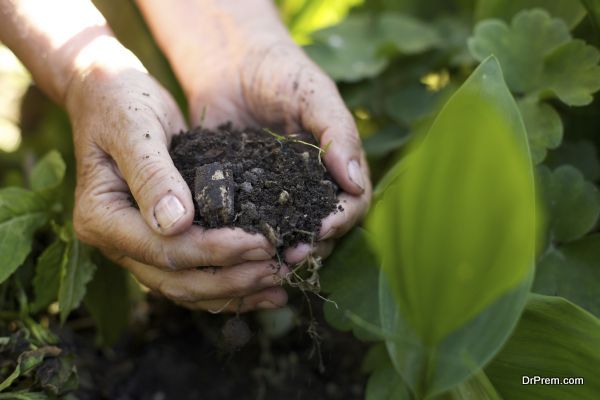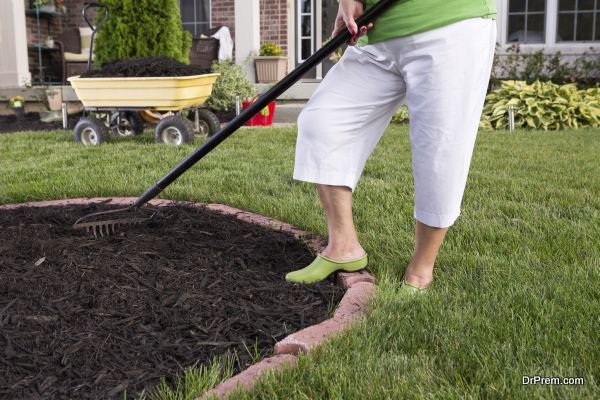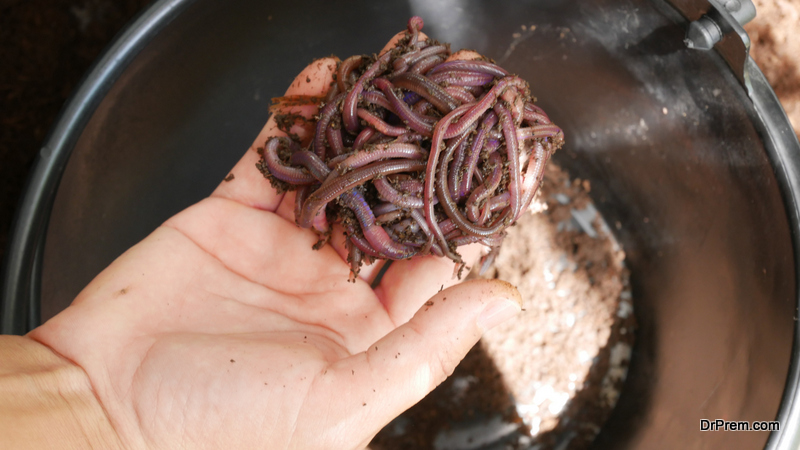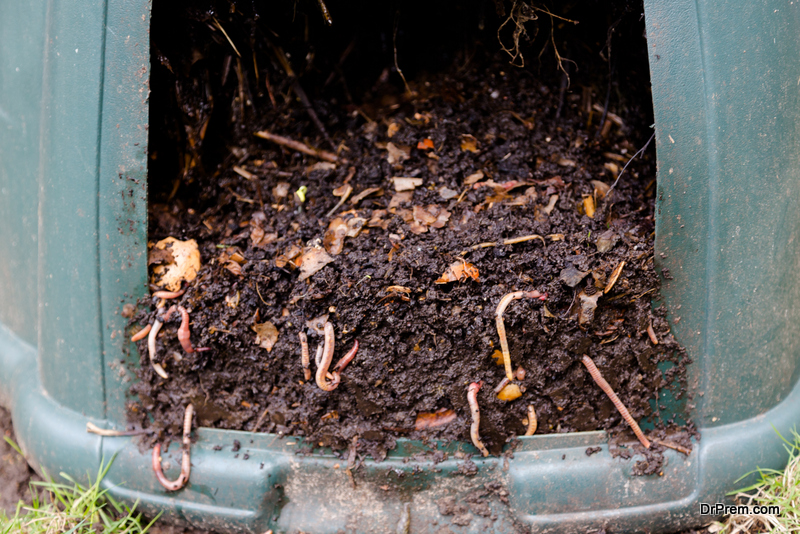Starting a home garden can be peaches and cream. You only need a shovel, a garden tiller, and a few crops. After planting, you water plants, mulch, use manure and ensure your soil drainage is perfect. In the long run, the success of your garden will greatly depend on the health of the soil.
By adopting healthy soil habits, you enhance the productivity of your garden and consequently the quality of the harvests. For your soil to remain healthy, you need to protect its soil structure, enrich it with nutrients, and ensure it has diverse soil microbes and soil organisms. So, how can you achieve that?
1. Adding Manure and Composting
 Compost manures provide readily available nutrients to your garden. It is considered a better component of soil compared to inorganic fertilizer. You can compost your food waste and inedible plant parts.
Compost manures provide readily available nutrients to your garden. It is considered a better component of soil compared to inorganic fertilizer. You can compost your food waste and inedible plant parts.
If not composted well, root and leafy vegetables will more likely be affected by contamination while plants with long stems such as corn can tolerate.
Nonetheless, composting is a great way to enhance your soil. When applied right, compost manure provides slow-release nutrients and enhances water retention.
2. Plant Deep Rooted and Cover Crops
Deep-rooted plants act as ‘miners’ mining minerals from the deeper layers of the soil. Examples of these plants include comfrey and stinging nettle. These plants act as ‘dynamic accumulators’ keeping the ‘mined’ nutrients in their systems.
When used as mulch or are incorporated in compost manure, they release the nutrients they ‘mined.’ This lessens the burden of using synthetic fertilizers on your garden soil.
Planting cover crops are perhaps the oldest and the most valuable strategy you can adopt to protect and improve your soil. Legumes, including alfalfa, beans, and peas, are the best cover crops as they fix nitrogen for plants.
You need to give the same consideration to cover crops as you do with food crops. You can do this by alternating cover crops with food crops in different seasons to enhance garden productivity.
3. Mulch the Soil
 Mulching is an obvious soil improvement strategy but not all gardeners take it with the seriousness it deserves. Mulching protects your soil from extreme temperatures thereby reduce the loss of soil moisture, control weeds and provide the soil with nutrients when the mulch decomposes.
Mulching is an obvious soil improvement strategy but not all gardeners take it with the seriousness it deserves. Mulching protects your soil from extreme temperatures thereby reduce the loss of soil moisture, control weeds and provide the soil with nutrients when the mulch decomposes.
High carbon mulches such as leaves and straws are high carbon and you might have been advised against them. However, when these high carbon mulches are placed on top of the soil, they do not rid the soil of nitrates.
4. Try Low-Tech Tillage
Power tillage will interfere with the structure of your soil and disrupt the soil food web. Even in instances where you need to remove cover crops, turning them into the soil as is informally advised is not a good option. Instead of power tillage, consider simple tillage methods that do not interfere with the soil structure and soil life.
Use heavy mulch that covers existing cover crops until they die. You can also let in chicken or sheep into your garden so they can eat up cover crops. While these two will interfere with the soil structure, they only interfere with the top layer. Your garden should only experience heavy tillage when you are digging out root vegetables.
5. Vermicompost and Drainage
 Worms are great as they aerate the soil. You can include user them in your garden by adding them into the compost pit where they can hasten the decomposition process and add nutrients to the manure.
Worms are great as they aerate the soil. You can include user them in your garden by adding them into the compost pit where they can hasten the decomposition process and add nutrients to the manure.
You may have noticed vegetation thriving near your pipes, especially when leaking. That’s because wet soil attracts microorganisms and worms. Fix your soil pipes by getting supplies from reputable dealers found here, and borrow a leaf from that observation.
You can add worms directly into the poor soil. When placed on your garden soil, together with compost and mulch, they aerate the soil and drop their castings.
If you can, farm worms and collect their castings for use in your garden soil. Since purchasing worm castings can be very costly, farming worms is a great way of enriching your soil.
6. Embrace Soil Test
What is your soil missing? You wouldn’t know, for sure, unless you tested. You can use a home soil testing kit or you can take soil samples to a lab and get it tested. Once you know exactly what your soil is missing, get to work to improve it.
For nitrogen, consider leguminous cover crops; for low phosphorus, consider bone meal; for low potassium, wood ash and banana peels in your compost will work; and for low calcium add lime.
The soil is an important component in your garden. If poorly managed, you dream of growing your own food will crash. With these tips, you can turn your dreams into reality.
Article Submitted By Community Writer


